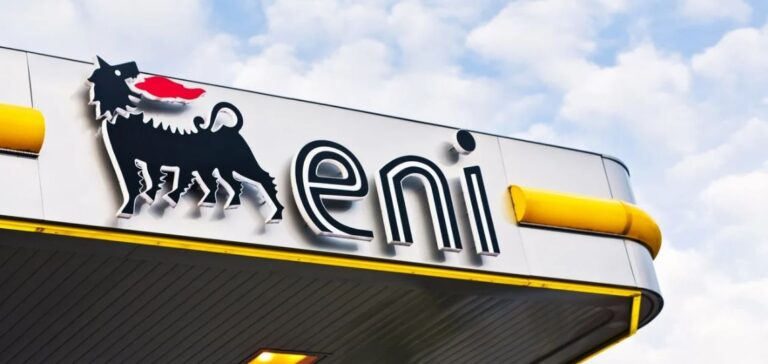Eni’s CEO, Claudio Descalzi, clarified during the presentation of the 2025-2028 strategic plan that the group planned to distribute between 35% and 40% of its annual operating cash flow as dividends and share buybacks, compared to 30% to 35% in the previous plan. For 2025, a dividend of €1.05 per share has been announced, representing a 5% increase, along with a €1.5 billion share buyback programme.
In parallel, Eni maintains its goal of reducing greenhouse gas emissions by 35% by 2030 compared to 2018, and by 80% by 2040, with a carbon-neutrality target set for 2050. The group plans to increase its installed renewable energy capacity through its Plenitude division, which will grow to 15 gigawatts by 2030. Eni has also confirmed its ambition to achieve biofuel production in excess of 5 million tonnes by the same target date.
Declining figures, but unchanged strategy
Eni’s net profit fell by 45% in 2024, amounting to €2.46 billion, well below market expectations. Revenues also dropped by 5%, reaching €88.79 billion, reflecting persistent pressure on oil and gas prices. However, despite these disappointing results, the group is sticking to its growth and diversification strategy. Descalzi highlighted Eni’s strong financial structure, assuring that the company is well positioned to support its long-term projects.
The company has also strengthened its market position with the signing of an agreement to sell an additional 5% of its bio-refining subsidiary Enilive to the US investment fund KKR for €587.5 million. KKR now holds a 30% stake in this entity, valued at €11.75 billion.
Massive investments ahead
The 2025-2028 strategic plan includes a total investment of €27 billion, with €6.5 billion to €7 billion allocated to investments in 2025. A portion of these funds will be allocated to Eni’s chemical division Versalis, to support the reduction of CO2 emissions. However, the war in Ukraine and the reorientation of energy supplies have highlighted a key issue for Eni: the diversification of its supply sources.
When asked about the possibility of a return to Russian gas supplies in the event of the war ending, Mr. Descalzi dismissed this scenario, emphasising that the market has irreversibly evolved. According to him, Russian gas has been replaced by other sources, making any future dependence unlikely. Eni is now focusing on a more diversified approach to securing its gas and oil supplies.






















